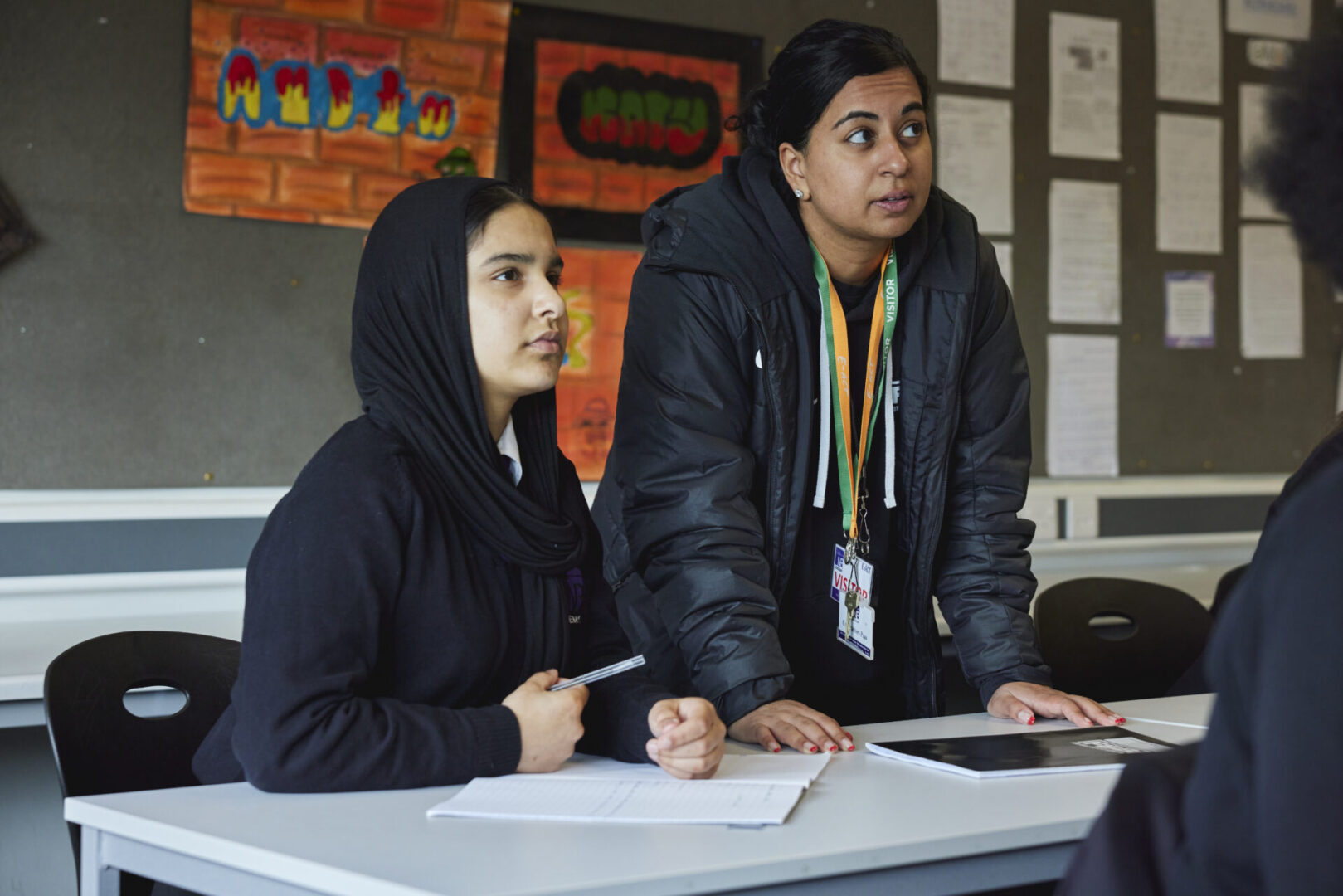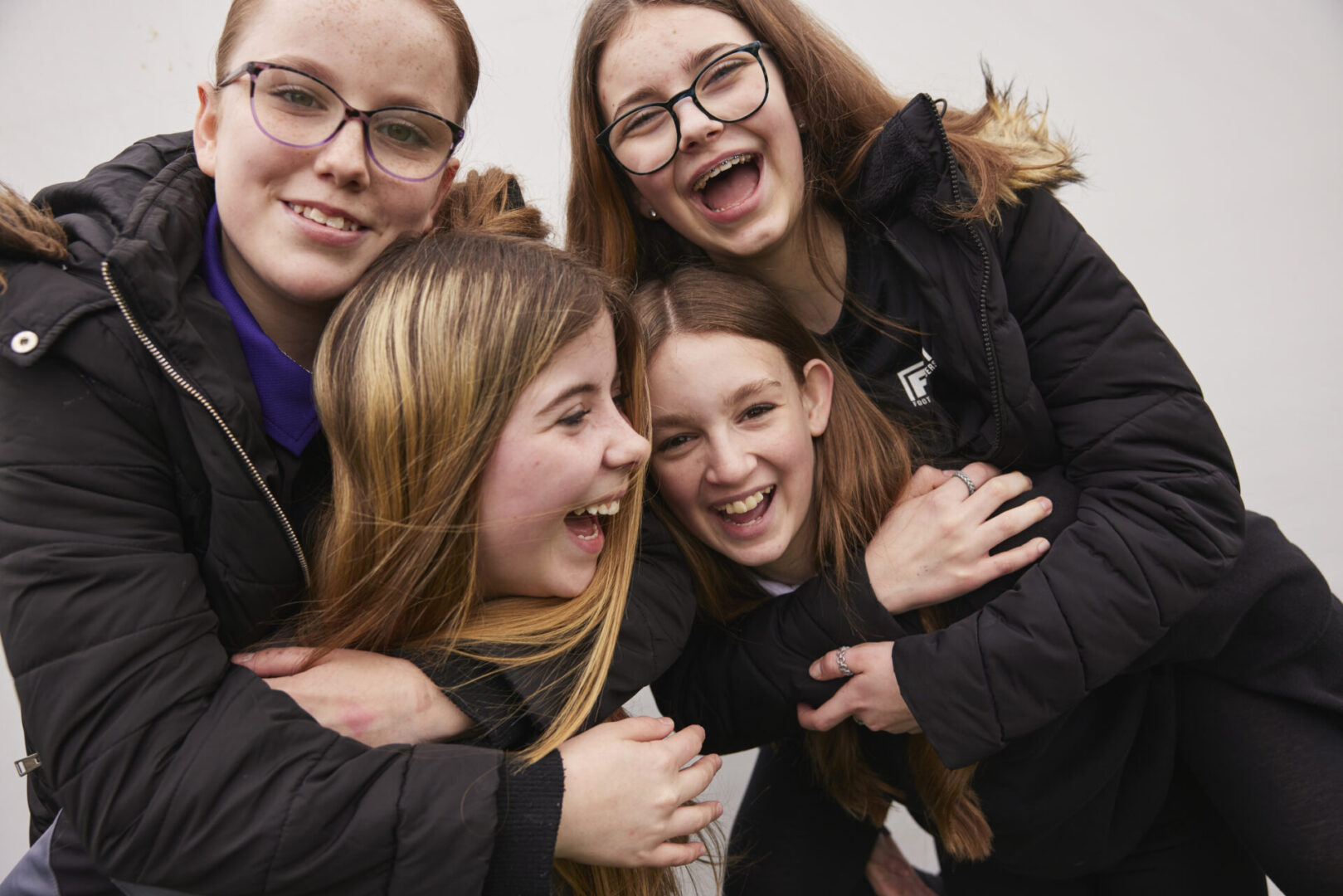Football Beyond Borders
The right support helps young people thrive in and out of school. Football Beyond Borders describe themselves as 'therapists in track suits'. Total funding awarded: £65,000
The aftermath of the pandemic has contributed to rising numbers of children and young people with mental health difficulties. Providing timely support could prevent them developing more serious mental illness, but school budgets are squeezed, and NHS services overstretched.
We know that providing early intervention for young people most at risk of mental ill health can profoundly change the course of their lives. That’s why we’ve made it one of our priority areas for the coming years.

Relatable counsellors drawn from the community
Football Beyond Borders provides trained counsellors who work with young people from areas of socio-economic disadvantage who are passionate about football but disengaged at school. These children have often had adverse or traumatic experiences in childhood and act out in response to those traumas. These behaviours are seen as disruptive, triggering a cycle of punishment and worsening behaviour, and a deep distrust of state services.
FBB counsellors – who are widely recognised for their work in schools – look and act differently to other counselling professionals. They wear tracksuits, they reflect the diverse communities they serve (60% of the team are from Black and minoritised backgrounds) and they are culturally competent and flexible in the way they provide support.

A safe space at school
We first funded Football Beyond Borders in 2020, with a grant of £30,000. The programme targeted and provided early intervention to economically disadvantaged young people between the ages of 11-14 years old and at risk of social exclusion and/or school exclusion. Working with 8 partner schools in Croydon, Lambeth, Lewisham and Southwark, FBB has developed a collaborative referral system triangulated between school, parent and young person.
In 2022, we extended the existing grant to fund an additional member of their team working with young people most at risk of exclusion in schools across Croydon and Lambeth. The practitioner we funded – a trained child and adolescent counsellor – worked with 23 students at one school between the ages of 11 and 17. She held over 205 sessions up to March 2023. As well as being there for pupils who had been referred, she welcomed any student feeling the need for support at drop-in sessions. For some of the young people who sought her out, it was because of a recommendation from their peers. Working with young people without judgement, she primarily uses the metaphor of football to encourage them to engage.
Pointing to the child’s experience of being part of a team, having the discipline to train or dealing with the disappointment of losing a game, she shows them that they already have strengths and coping skills which they can transfer to other aspects of their lives. For youngsters who have other passions, a session could consist of making art, or using a “wreck-it journal” – a book that they creatively rip, cut and paste, paint or hit – to release frustration and anxiety. At other times, they may simply want to talk.

When I started my FBB journey in Year 8 I enjoyed playing football but always was in trouble at school. Sometimes I wouldn’t be able to come to sessions because I would be in trouble for how I reacted to things which happened throughout the day. FBB really helped me find better ways to deal with school situations and develop my self-management which definitely helped me stay out of trouble.
By forging a trusting therapeutic relationship that allows them to express themselves in a safe and secure context, young people learn to identify and share their emotions, and develop coping mechanisms that encourage positive mental wellbeing. Where necessary, the counsellor advises parents on ways to maintain these positive changes at home.
FBB has been a great experience for my daughter to attend. It has opened her up to be more self-aware. She is more tolerant of people in group settings and her growth and resilience has noticeably improved. Thank you for the role you play in making this happen.
